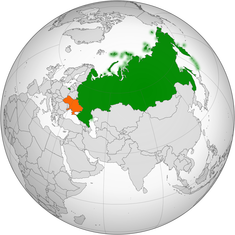
Ukraine and Russia Part One: The Threat
Last updated: Thursday February 24th, 2022
Report this blog
"IS RUSSIA GOING TO INVADE UKRAINE?"
is probably a question we've been hearing a lot in the news recently. It's quite a dramatic and eye-catching headline, one must admit. So... is Russia going to invade Ukraine? Well, maybe... and maybe not. Here is a brief overview of the situation, and what might come out of it.
The Context
To answer the question, one must first know what "Ukraine" and "Russia" mean. A pretty silly question for most people reading this, given all of you can probably locate the countries on a map without missing a beat. But what separates the two? And what's caused the huge amount of adversity between them?
Well, to start off, both Ukrainian and Russian are East Slavic cultures, meaning they belong to the same subcategory of Slavs and are thus quite similar. But not identical. Both Ukrainians and Russians derive from the Kievan Rus', a medieval Eastern European state. After it collapsed, the Kingdom of Ruthenia was established by ethnic Ukrainians, while Russians soon began moving northeast, settling around the political center of Moscow, which still stands today as Russia's capital. The Mongol invasions, however, led to both groups becoming vassals to the Golden Horde. Eventually, the Russians were able to gain independence from the Mongols, but Ruthenia was annexed by Poland, which later became Poland-Lithuania. Fast forward a few decades, the Cossack Hetmanate was created by Ukrainians, who have now had been exposed to centuries of non-Slavic and non-Russian influence. The state was a vassal to the Ottoman Empire, but eventually was taken over by the Tsardom of Russia, which has now established itself from the Grand Duchy of Muscovy. In 1721, Peter the Great turns the Tsardom of Russia to the Russian Empire, of which Ukraine remains a territory. There was a short time in World War I that Ukraine declared independence (and was recognized internationally), but the communist revolution completely crushed any hopes for an independent state. In fact, Ukraine doesn't definitively gain its independence until 1991, when the Soviet Union dissolves.
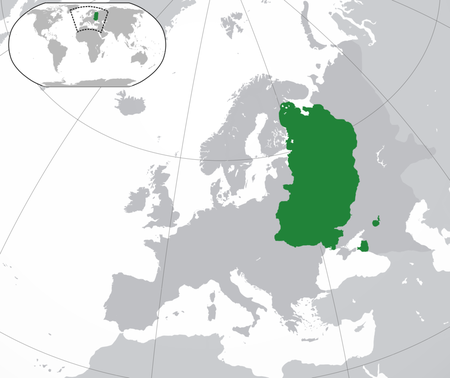
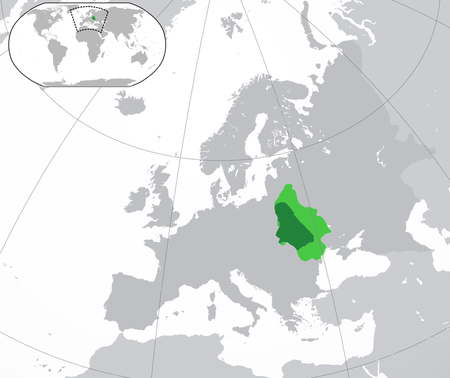
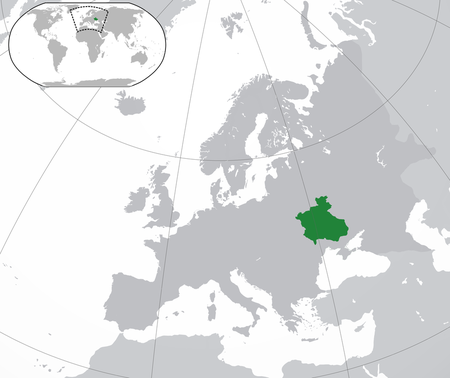
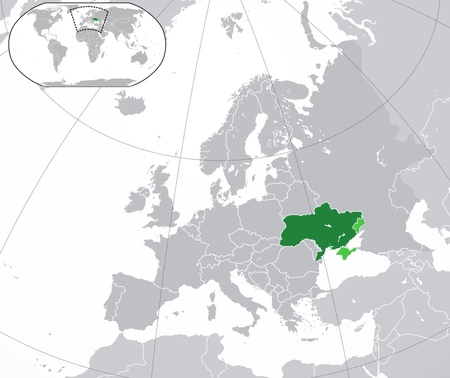
Sorry if that seemed a bit rushed, I just covered more than 1,000 years of history in a paragraph.
The Problem
So now you know that Ukraine and Russia have had centuries of different ethnicities and ethnic states. And Ukraine has been ruled by Russia for the last few centuries for the most part. The problem lies in the fact that Russia views Ukraine as a long-lost sibling of sorts, seeking to fold them safely once more into the Russian state, while Ukraine, in general, sees Russia as somewhat of a demented cousin who wants to take away the independence they've been granted after so many years.
Is Russia justified in taking away Ukraine's independence if the general public doesn't support it? No. There is a problem in the problem, though, in that there is a minority in Ukraine that supports Russian reunification. Actually, there are regions in Ukraine where there is a substantial number of ethnic Russians.
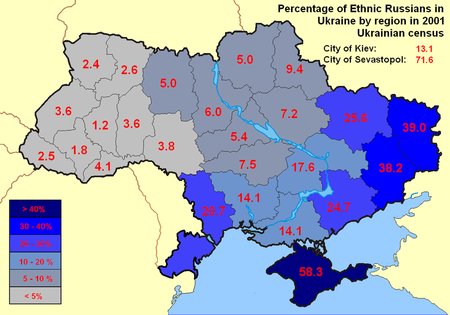
As a result, since 2014, Ukraine has been fighting a civil war, in the east for the most part, against Russian-backed militias. The Donetsk and Luhansk regions, especially, have been rebellious. They have control over all or parts of their respective regions and have unrecognized governments. There was also the infamous seizing of Crimea by Russia in 2014, which they justified using metrics such as these.
So what? What we know is that there are many Russians in eastern Ukraine who will fight to see their country join Russia. And herein lies the problem. There may be a few Ukrainians (but really Russians) who seek unification with Russia, but the vast majority seek to remain independent. And that's something Vladimir Putin is willing to ignore.
The Reasoning
Why does Russia want to invade Ukraine? Does it even want to? Is this all just a show of force to intimidate the West?
Well... to be honest, we can't answer any of these questions. At least until after all this is over. But we can answer is the question "Why is this situation happening at all?"
A huge part of this is NATO, and specifically, Ukraine's eligibility into it. NATO is a military alliance, meaning that, yes, should Russia threaten Ukraine if they are a part of it, they will face much greater consequences than if Ukraine weren't in NATO. But the more important thing is that, should Ukraine join NATO, the US and its allies will be able to position military units directly on Ukraine's border with Russia, dramatically reducing its ability to project power in Eastern Europe, but also opening up the possibility for a direct invasion of Russian soil. With the Baltic states invading from the northwest, it would be a strategic disaster for Russia. Therefore, it wants to be able to insulate itself by drawing Ukraine into its own sphere of influence, like with Belarus. And the only way to be able to do that is to guarantee Ukraine's permanent ineligibility for NATO.
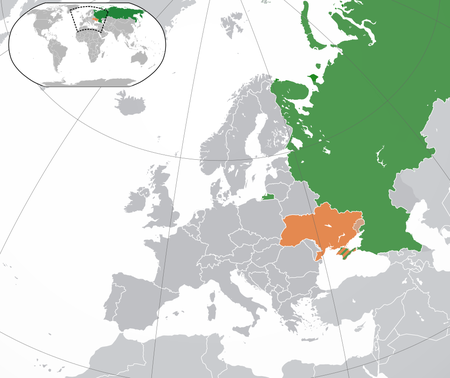
A part of this is also that Russia, at the moment, feels like it has a pretty nice hand. Specifically Nord Stream 2. This natural gas pipeline being constructed between Germany and Russia would allow for significantly greater oil imports from Russia for Europe. It's been quite controversial, as opponents, like the US, say it would give Russia huge leverage and a potential political weapon. Russia might feel as though Central and Eastern Europe can't afford to not have this pipeline, and will thus be able to have more control over these countries in the region with the ability to suspend it, should it be completed.
In addition, Russia has received plenty of economic sanctions from the West (especially after Crimea), so it has made strides to insulate itself from exterior economic pressures. Therefore, the sanctions that President Biden is warning will be implemented should Russia invade Ukraine might not seem so threatening. Of course, Russia is not immune, and will likely suffer some sort of economic downturn as a result, especially if the US uses some of the unexplained "new" sanctions that they've been hinting at.
The Situation
Russia has positioned over 100,000 soldiers on its border with Ukraine, armed with combat equipment, along with a naval force in the Black Sea. Most recently, it added medical support and blood supplies to the list of mobilized equipment. Russia claims these are only large-scale military exercises, but the West, especially the US, expresses otherwise.
Diplomatic talks between the US and Russia have broken down, with the US having rejected the latter's list of demands to defuse the situation (amongst which include a guarantee that Ukraine will never join NATO). Many countries are beginning to advise their citizens in Ukraine to either get ready to move or to evacuate. In fact, the US embassy in Kiev has just been moved out to Lviv should Russia be able to seize the capital quickly.
In addition, US intelligence has allegedly discovered a video fabricated by Russia to use as a pretext for invasion. The concreteness of this is questionable, given not much information nor evidence has been provided. There are also rumors of an invasion on Wednesday, February 16, which also does not have proof of being true. It appears that there is currently a standoff, each waiting for the other to make their move.
Even as the threat of invasion looms, the average Ukrainian doesn't seem to be too worried. In fact, the government of Ukraine has accused the West of blowing the Russian threat out of proportion.
Is that reasonable though? Looking back, there have been a few occasions where a Russian invasion of Ukraine seemed imminent, yet didn't occur. For example, March/April of 2021. A buildup of Russian forces rapidly grew in this time, with several smaller incidents occurring between Ukrainian soldiers and Russian soldiers. Relations at the time appeared to be rapidly deteriorating. However, this was soon dispelled after Russia appeared to back down in late April. Only for the problem to resurface later in the year.
So will Russia pull back now? Maybe. Just a few hours ago, they decided to pull 10,000 troops back from the front to return back to their bases. Of course, this does not mean that the whole situation is over. Russia still has plenty of soldiers that can be used to invade Ukraine. It could be a ruse to try and lull Ukraine and the West into a false sense of security. Or it could be the beginning of the end for this event.
The Conclusion
What do I want you to take away from this? Is it... that Russia is a huge, big baddie? Or that the West is making things seem much more dramatic than it is? Or perhaps that Russia is justified in invasion? These could all be viable options, if you should choose to interpret it that way.
But what I really want you to take away is two things: the first will apply to some people, and the second will apply to everyone.
Firstly, if you don't normally read the news... you should. Even if it's just the headlines, if you don't have time. Geopolitical events like these can occur immediately and without precedent, so it's important to stay on top of what's happening. If you have a phone, make sure you download a news app and turn on notifications so that you can get the daily headlines of what's happening around the world. For example, this morning, following the announcement by Russia that they are withdrawing 10,000 troops, worldwide stock markets jumped up, including US markets. If you didn't read the news (and lived on the East Coast of the US), it would appear as though the market mysteriously flew upwards at 3 in the morning. Reading the news will make sure you have a sense of what's going on outside of your life.
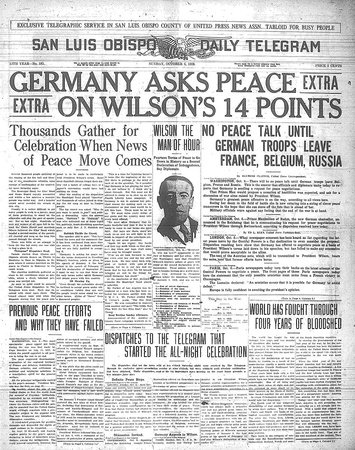
Secondly, being able to identify and correctly evaluate news articles is just as important. This will allow you to determine if the news you read should change your daily life and if you should care about it. Reading the news in late March might have given the impression that Russian invasion was imminent, only to discover a month later that the entire thing had been a show. An important thing to keep in mind is that news sources tend to dramaticize events. The more biased the source, the more dramatic the reporting tends to be. Take what you read with a grain of salt. This is a great source for determining the reliability of a news source.
This blog was meant to be an easily understandable source for current events. Therefore, many aspects were oversimplified/shortened for easier digestion and public consumption. Hopefully, the Russian withdrawal this morning will lead to a dissolution of this situation and I won't need to write a Part 2 for this. Thanks for reading.

You're very correct that the media either exaggerates the situation way too much or are very biased. News channels cannot be trusted these days.
I also agree that it has become extremely hard to find good news sources without bias. The outlets I would recommend (taken from the Ad Fontes chart) are NPR news, Reuters, and AP. Let's hope that news sources won't be given a legitimate reason to be so dramatic in the near future.
never trust on the biggest broadcast company of your country (in my case, Globo TV): JetPunk blogs are always the best solution :)also yeah, big broadcasting companies tend to be very unreliable. JetPunk for the win!shame on you, Globo. JetPunk is the way :)I was just listening to the radio earlier.
Apparently Russian intelligence might bomb the houses of Russians living in Ukraine, to have a reason to invade...
Personally, I hope this is resolved peacefully so that everyone is happy.
Excellent explanation and breakdown of the situation thank you!
russia invaded ukraine